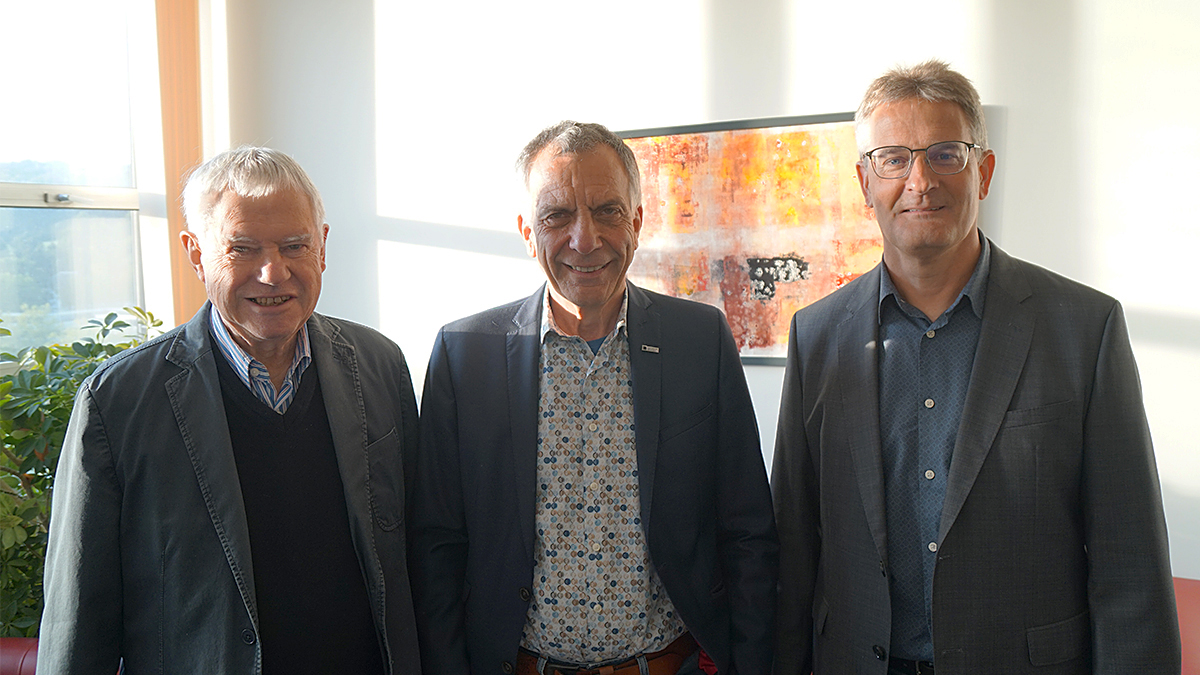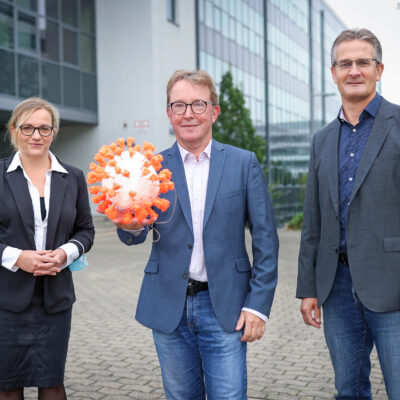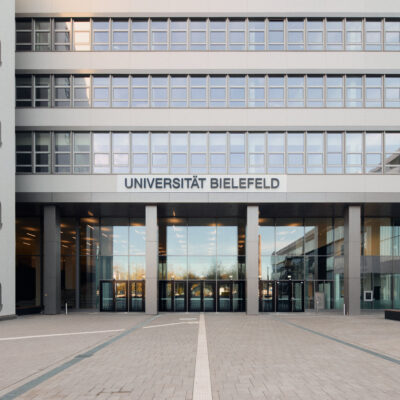At its Institute of Bio- and Geosciences (IBG), Forschungszentrum Jülich, a member of the Helmholtz Association, has set up a new section: Computational Metagenomics (IBG-5). But what makes it so special is the fact that it is a branch office located at Bielefeld University.
Dr Alexander Sczyrba, professor of computer science at Bielefeld University and expert in the field of computer-assisted metagenomics, has been appointed director of the section. He has been granted a leave of absence from Bielefeld University to fulfil this role. The section is divided into three departments: Computational Metagenomics, the Administration Office of the German Network for Bioinformatics Infrastructure (de.NBI), and the Administration Office of ELIXIR Germany. A total of 16 people are already working in the section and more will follow. They are currently housed in rooms at Bielefeld University.

© Bielefeld University
‘Creating the IBG-5 section forms a strong bridge between the bioinformatics expertise of Bielefeld University and the Forschungszentrum Jülich,’ says Professor Dr Alexander Sczyrba. ‘This link opens up a wide range of opportunities for research in Jülich and Bielefeld, because it creates a dynamic and well-networked bioinformatics research environment that promotes collaboration between different academic disciplines such as the life sciences or high-performance computing. Close collaboration with other research institutions, universities, and industrial partners plays a central role in the section’s strategy. Here in Bielefeld, we coordinate two central academic infrastructure networks, de.NBI and ELIXIR-DE, which offer services in the field of bioinformatics for the life sciences and biomedicine.’
‘This branch office of Forschungszentrum Jülich means we now have a larger scale of non-university research in Bielefeld,’ says Professor Dr.-Ing. Gerhard Sagerer, who is delighted with the development. ‘This section is of great importance for the national and international networking of bioinformatics. The transfer of important projects—especially the de.NBI network—as well as the infrastructure that has been built up over the years, provides a sustainable basis for research in Bielefeld. What is more, research will become even more visible at the Bielefeld location. This will benefit not only the university but also the entire OWL region. My thanks go to all those involved for their dedication and flexibility in making this solution possible. I would especially like to thank Professor Dr Alfred Pühler, who has been working very successfully in this field for many years and has built up and expertly coordinated de.NBI. Special thanks also to Ralph Brinkhaus, Member of the Bundestag and Chairman of the CDU District Association of East Westphalia-Lippe. Back in 2020, he ardently campaigned for this project in Berlin, and thus paved the way for this step.’
The newly established section is dedicated to bioinformatics research activities with a focus on interdisciplinary (meta-)genome coding and analysis. The emphasis is on the use of cloud computing technologies to analyse large amounts of data and to support various applications in the life sciences and biomedicine. This research approach will be integrated seamlessly into the national (de.NBI) and international (ELIXIR) service and infrastructure network to make data analysis more efficient and better automated for both the academic community and the user.
Computational Metagenomics develops novel algorithms and tools for analysing microbial communities based on metagenome and transcriptome data. These microbial communities can include thousands of microbial and viral species originating from different environments such as soil or water. Bioinformatics analysis requires a powerful computing infrastructure due to the exponentially growing volume of data, while paying special attention to the scalability of bioinformatics applications in cloud computing environments. The department operates the de.NBI Cloud Bielefeld location in cooperation with Bielefeld University.
The de.NBI Administration Office is responsible for coordinating the activities of the German Network for Bioinformatics Infrastructure, which focuses on providing open access solutions for bioinformatics services. These include software, databases, data management, as well as a comprehensive range of training courses and cloud computing for users in life science research. All partner institutes of the de.NBI network are also members of ELIXIR Germany and offer their services on a European level.
ELIXIR Germany forms a link to the European bioinformatics infrastructure ELIXIR (European Life Science Infrastructure for Biological Information), which bundles life science resources such as databases, software tools, training material, and cloud storage from all over Europe. ELIXIR Germany is the national node of Germany established by the Federal Ministry of Education and Research (BMBF) and helps researchers in the network find, analyse, and share data more easily. It also promotes the exchange of expertise and the application of best practices.




